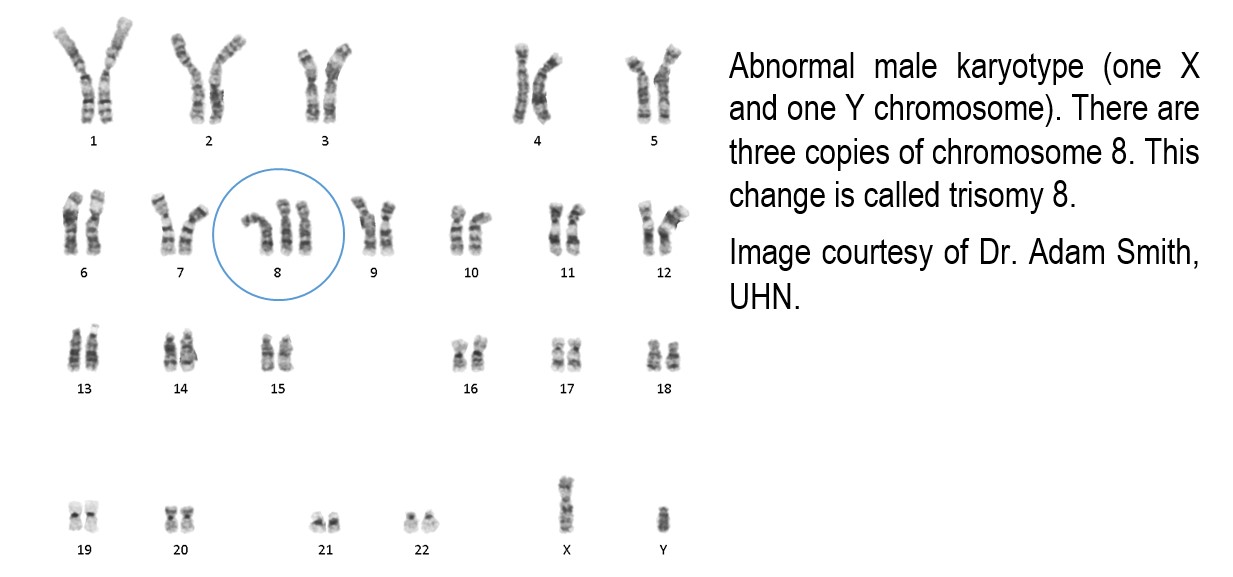A karyotype is a laboratory test that looks at a person’s chromosomes. Chromosomes are long, organized structures made of DNA, which carry the genetic instructions that tell your body how to grow and function. In a karyotype test, the chromosomes are stained with a special dye and examined under a microscope. This allows doctors to see the number, size, and shape of the chromosomes.
Most healthy human cells contain 46 chromosomes, arranged in 23 pairs. One set of 23 chromosomes comes from the mother and the other set comes from the father.

Why is a karyotype performed?
Doctors may order a karyotype test for different reasons. It can help diagnose genetic conditions that a person is born with, such as Down syndrome, which is caused by an extra copy of chromosome 21. A karyotype may also be performed on tumor cells to look for genetic changes that help doctors understand the type of cancer and guide treatment.
What abnormalities can a karyotype show?
A karyotype can reveal a variety of changes in chromosomes, including:
-
Extra or missing chromosomes – For example, three copies of chromosome 21 instead of the usual two (trisomy 21).
-
Missing pieces of a chromosome – A section of DNA is lost.
-
Extra pieces of a chromosome – A section of DNA is duplicated.
-
Exchange of material between chromosomes – Sections of DNA are swapped between two different chromosomes.
These types of changes can affect how cells grow and function.
What does complex karyotype mean?
The term complex karyotype means that three or more different chromosome abnormalities are seen in the same sample. In cancer, a complex karyotype usually indicates that the tumor cells have many genetic changes, which can affect how the disease behaves and how it responds to treatment.
Questions to ask your doctor
-
Why was a karyotype test ordered for me?
-
Were any abnormalities found in my chromosomes?
-
What does this result mean for my health or treatment?
-
Does the finding of a complex karyotype change my diagnosis or prognosis?



